Get to Know the Moringa tree - History, Different uses, Nutrition.
If you are new to the world of Moringa, it is likely that you have many questions. Chief among them is probably: What is Moringa used for? While we will certainly answer that question in this post, we need to begin with the absolute basics. So, let's start with the most fundamental: What is Moringa?
What Is Moringa?
Moringa Oleifera tree is a genus of angiosperms that belong to the Morinaceae family, native to Asia and Africa. Moringa is a special superfood that contains a high concentration of proteins and all the amino acids as well as micro and macro elements, anti-oxidants, flavonoids, and glucosinolates.
It is, therefore, an important source for added nutrition to poor foods such as cereals, and tubers.
A study comparing more than 120 kinds of vegetables found Moringa as one of the most nutritious species, Moringa leaves contain more iron than spinach, more vitamin C than an orange, more vitamin A, more calcium than milk, more potassium than a banana, and more vitamin E than almonds.
The leaves are taken from Moringa Oleifera, and this is one of the most nutrient dense plants in the entire world.
What is another name for Moringa? It is also called the drumstick tree and horseradish tree, ben oil tree, or ben tree and has been viewed by some cultures as a superfood for centuries. It is so popular in Asia and Africa that you can find many unique names.
How to say Moringa in other languages? Well, in Cameroon you might call it Paizlava or Naa-nko; in Kenya, it might be Mkimbo or Shingo, and far away in Indonesia it would be Moltong or Kelo, among dozens of other names.
What is the meaning of the word Moringa? Well, though you might think it means something along the lines of superfood, it means twisted pod because of the shape of the pods the tree produces that also gives the moringa tree the name Drumstick tree.
What Is Moringa Used for and How Is Moringa Used?
Now, we can go back to the issue of what it is and how do you use Moringa? There are many reasons different cultures use Moringa, with one of the most common being to combat malnourishment. The nutrients are found in the leaves, and this is what is used to create products of different kinds.
What are the benefits of taking Moringa supplements? The nutrient density makes it a good source of:
- B-Vitamins
- Iron
- Magnesium
- Vitamin A and C
- Zinc
In fact, it surprises many people to learn that "gram-for-gram, Moringa has more protein than yogurt, more potassium than bananas, more calcium than milk and more Vitamin C than oranges". However, this does not look at the volume needed to obtain those nutrients. A gram of Moringa leaves is a tremendous amount more than a single gram of yogurt or orange flesh. You might have to eat many cups of leaves or dried and powdered leaves to get the same as a single gram of yogurt or orange.
Still, if you use supplements, they can provide condensed forms of Moringa and allow you to enjoy the nutrients and other benefits. Other benefits include reduced fatigue, improved skin, a better immune system, muscle growth, reduced stress, better digestion, improved energy levels and management, stronger teeth and bones, better vision, and even higher libido.
Is it true eating Moringa can increase your appetite for sex? Moringa has a history of being used as an aphrodisiac and remedy for erectile dysfunction. The International Journal of Pharmacy and Pharmaceutical Sciences noted it was high in certain compounds linked closely to improved libido, which means it can be one of the benefits of Moringa use.
In addition to being used as a powder in supplements, it is also found as an oil. What are the benefits of Moringa oil? Taken from the Moringa seeds instead of the leaves, it is filled with antioxidants, good for anti-aging of the skin, improving the complexion and condition of the skin, good antiseptic antibacterial and anti-inflammatory oil, remedying cuts and burns, target dry and flaking skin, strengthening the hair and scalp, fights dandruff and split ends and more.
Does Moringa contain antioxidants? Yes, it is very high in antioxidants. According to Healthline, it is "very rich in healthy antioxidants and bioactive plant compounds." We know it is high in Vitamin C, but also in quercetin and chlorogenic acid, both helping to lower blood pressure and control blood sugar in addition to fighting inflammation and oxidation.
What are the side effects of taking Moringa? There really are not many reported issues when using supplements or oils. Those who take it orally say it can be a bit bitter and cause gagging in some. Those on blood thinners must discuss using it with their doctors. As is the case with many supplements, it is not recommended for lactating or pregnant women. As a superfood Moringa is a super reliable food supplement source and one to consider today.*This statement has not been evaluated by the Food and Drug Administration. This product is not intended to diagnose, treat, cure, or prevent any disease.

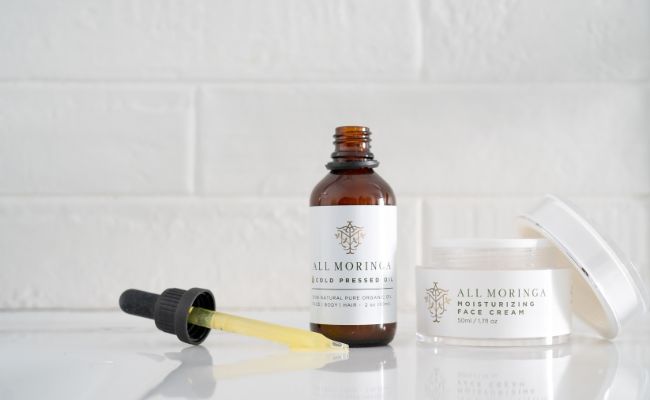
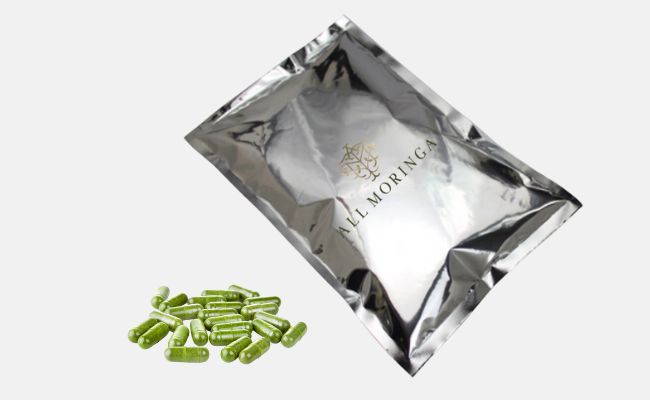
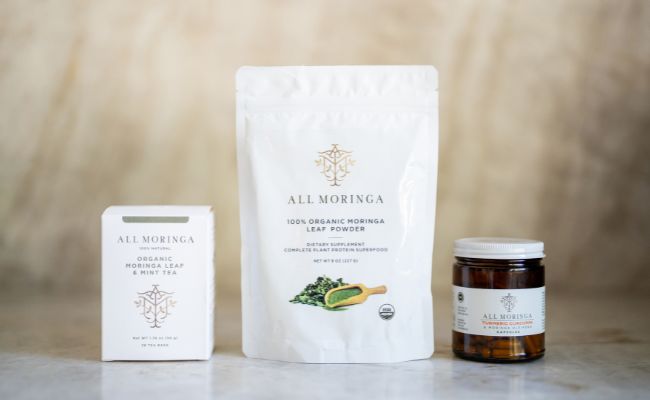
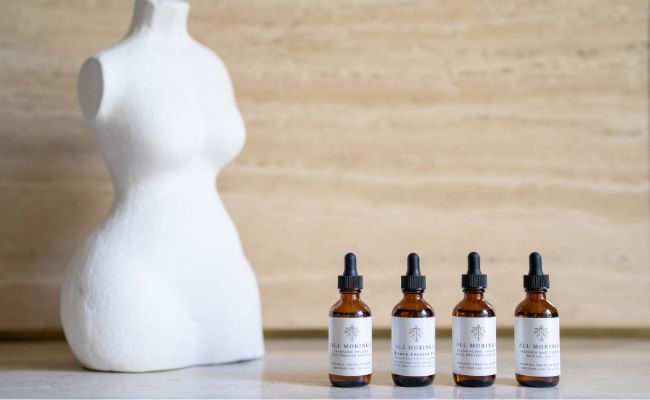
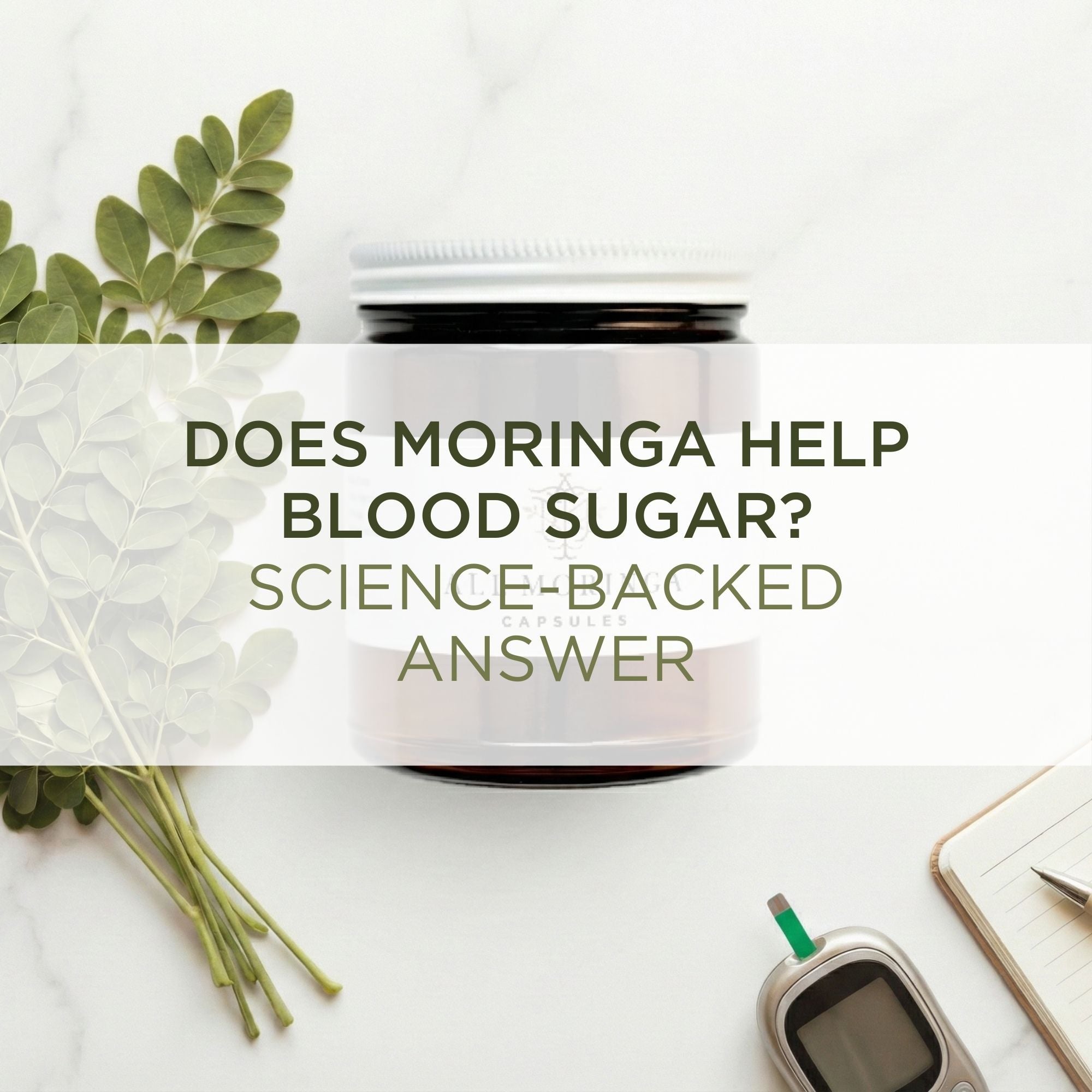
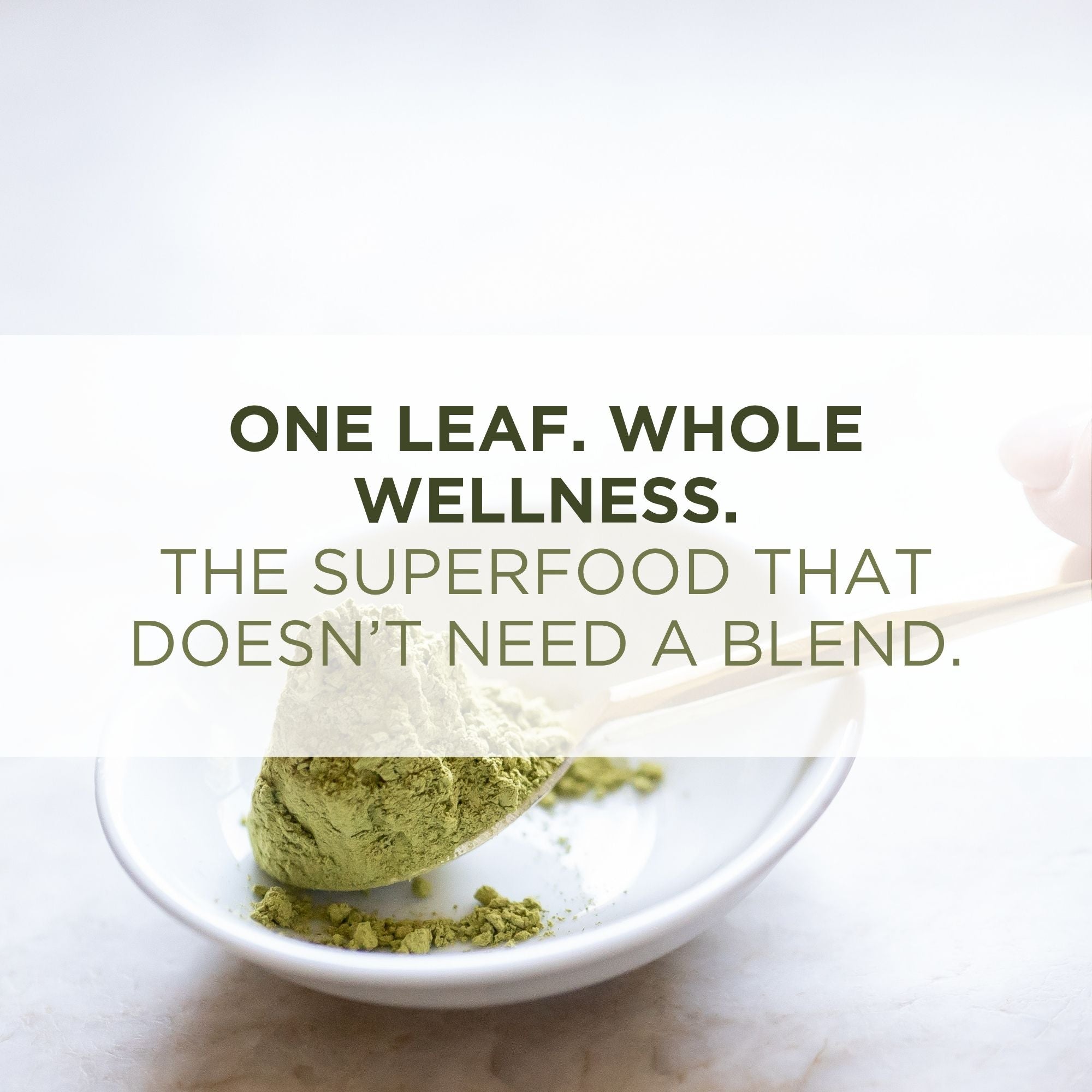

Leave a comment
This site is protected by hCaptcha and the hCaptcha Privacy Policy and Terms of Service apply.